Addressing Burnout: Institutional Models for Retaining Healthcare Workforce
*Please note: this article includes sensitive topics such as self-harm and suicide.
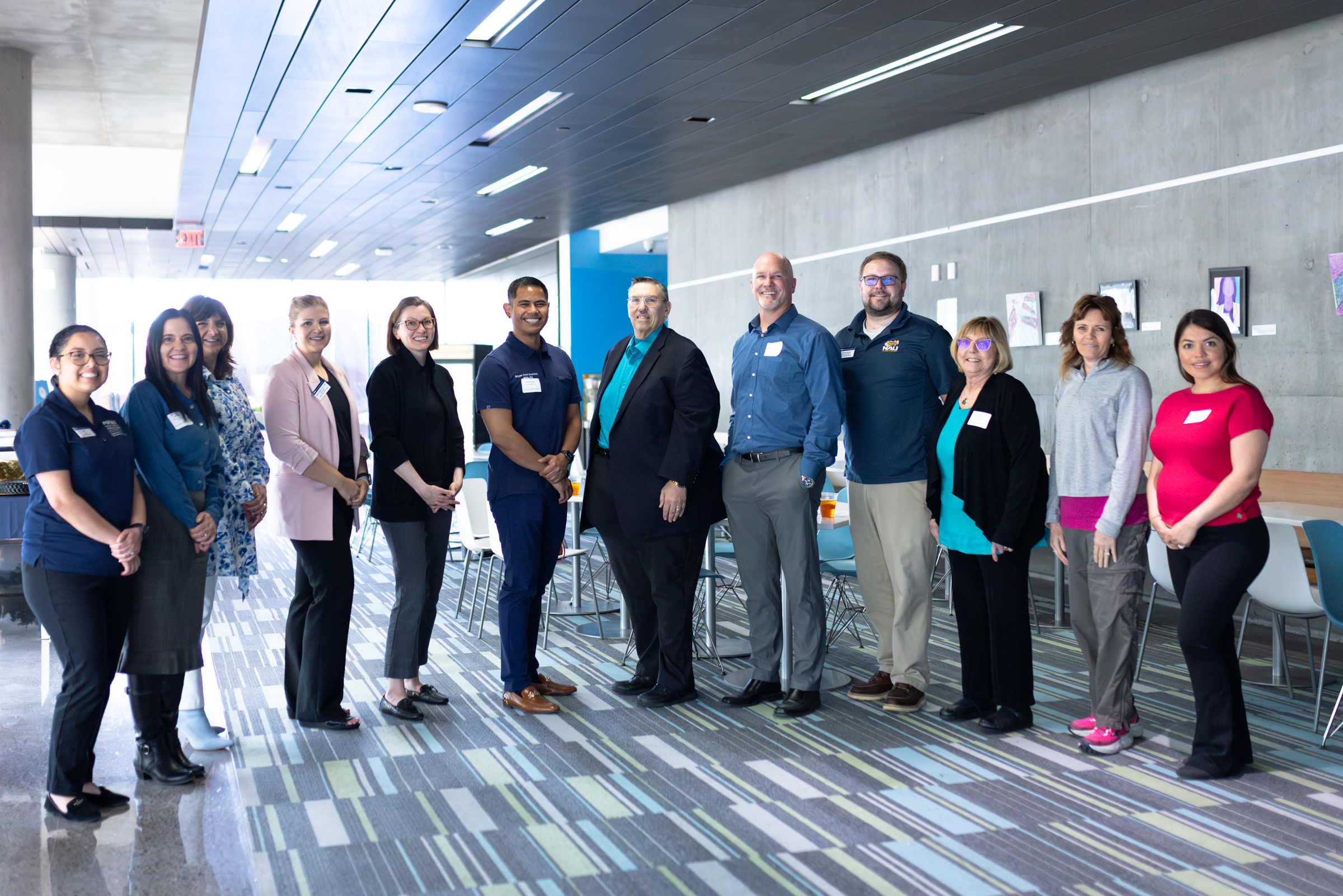
In February, wellness advocates, researchers, and healthcare workers gathered at NAU’s Phoenix Bioscience Core in person and virtually for a workshop on a prevalent topic: Addressing Burnout: Institutional Models for Retaining Healthcare Workforce.
Arizona Biomedical Research Centre (ABRC) and Northern Arizona University’s Center for Health Equity Research (NAU CHER) come together each year to host workshop-style conversations on community-driven topics with experts from across the health equity spectrum. ABRC Workshops aim to engage stakeholders at every level on critical health topics leading to collaboration and advancement.
This workshop captured strategies from wellness professionals on identifying burnout, seeking help when needed, and wellness culture. We even got our bodies moving with chair yoga and box breathing!
Battling burnout with Bernadette Melnyk
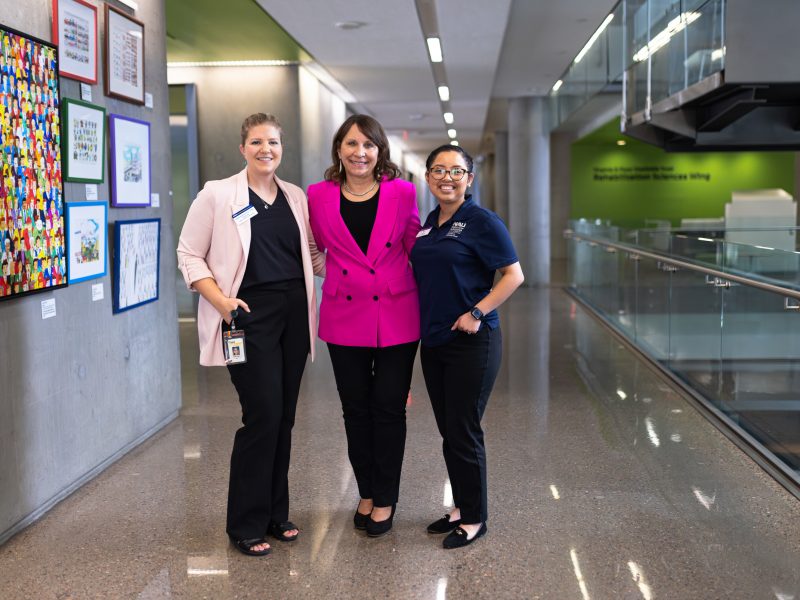
Bernadette Melynk began the workshop with a presentation on battling burnout and the idea of creating wellness cultures to optimize clinicians’ health and wellbeing. She emphasized the importance of combining evidence-based strategies with emotional storytelling to drive behavioral change and discussed her journey from studying corporate wellness at Arizona State University to becoming the first-of-its-kind Chief Wellness Officer at Ohio State University (OSU).
Mental healthcare stigma
During the COVID-19 pandemic, healthcare workers faced overwhelming conditions, working tirelessly, and dealing with under-resourced facilities. Melnyk highlighted the severe mental health struggles among healthcare professionals during this time, including several who died by suicide due to the stress.
Lorna Breen, who managed an emergency room in New York City, worked continuous long shifts until she reached her physical and emotional limit but refrained from seeking mental health support for fear of professional repercussions. Tragically, she died by suicide on April 26, 2020. In response, the Dr. Lorna Breen Heroes’ Foundation was established to combat healthcare burnout and promote mental health care as a strength – an idea that Melnyk emphasized.
Corey Feist, co-founder of the foundation and Breen’s brother-in-law, helped pass the Dr. Lorna Breen Health Care Provider Protection Act to support healthcare workers’ mental health nationally. Melnyk collaborated with the foundation to examine mental health questions in nursing licensure, leading to significant changes in several states’ applications, demonstrating a critical, positive impact on the profession.
Burnt out providers
Melnyk mentioned multiple studies that showed alarming rates of burnout embedded throughout the medical system. Pharmacists, nurses, medical students, and administrators reported very high rates of anxiety and stress that led to preventable medical errors. In their research, they found a commonality that affected these rates: organizational culture.
It starts at the top
Melnyk spoke on findings from multiple studies conducted on burnout rates among healthcare professionals and the factors that contribute to resilience, such as perceived support from their organization and a culture of well-being. She stated the importance of healthcare leaders creating supportive environments and addressing systemic issues that contribute to burnout, like staffing shortages and administrative burdens (the “stupid stuff” as Melnyk called it).
“We’ve got to decrease some of what we require or the way we require it because it takes so much time away from patient care,” said Melnyk.
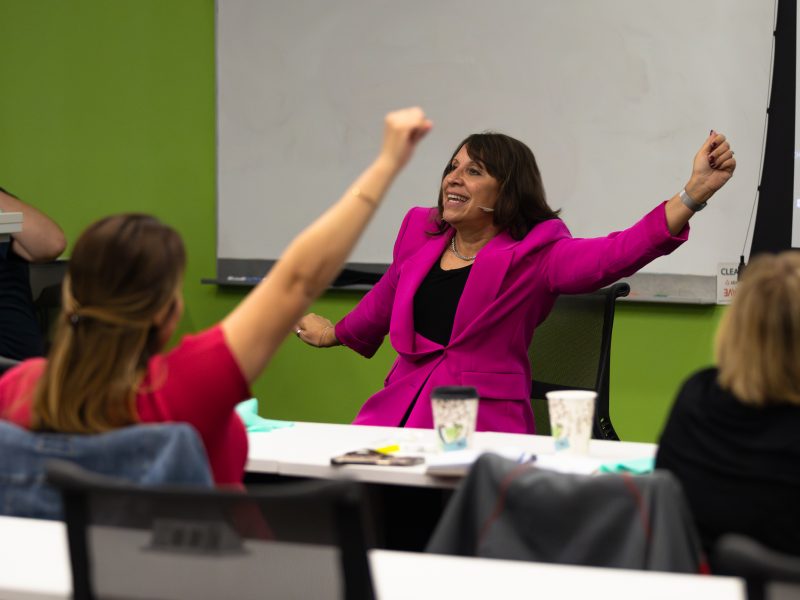
Melnyk introduced the group to chair yoga and gave each person an elastic exercise band to use in mirroring her movements. Soon after, Earth, Wind & Fire’s “September” blasted from the speakers of the conference room and her closed fists flew toward the ceiling in perfect sync with the music. The crowd enthusiastically joined her with smiles and giggles and the energy of the room quickly changed, demonstrating the power an activity like this could have in the workplace.
Dr. Melnyk gave us invaluable insight on the impacts of mismanaged stress and mental health concerns, evidence-based stress management strategies, and the need for wellness culture embedded throughout the organization. Dr. Melnyk ends her presentation with inspirational words:
“What’s your dream? What impact do you want to make in the world?”
System factors and strategies panel
Oaklee Rogers, Griselda Escalon, and Kate Gawlik presented programs and strategies they’ve used or created to address burnout in their realms.
The panelists
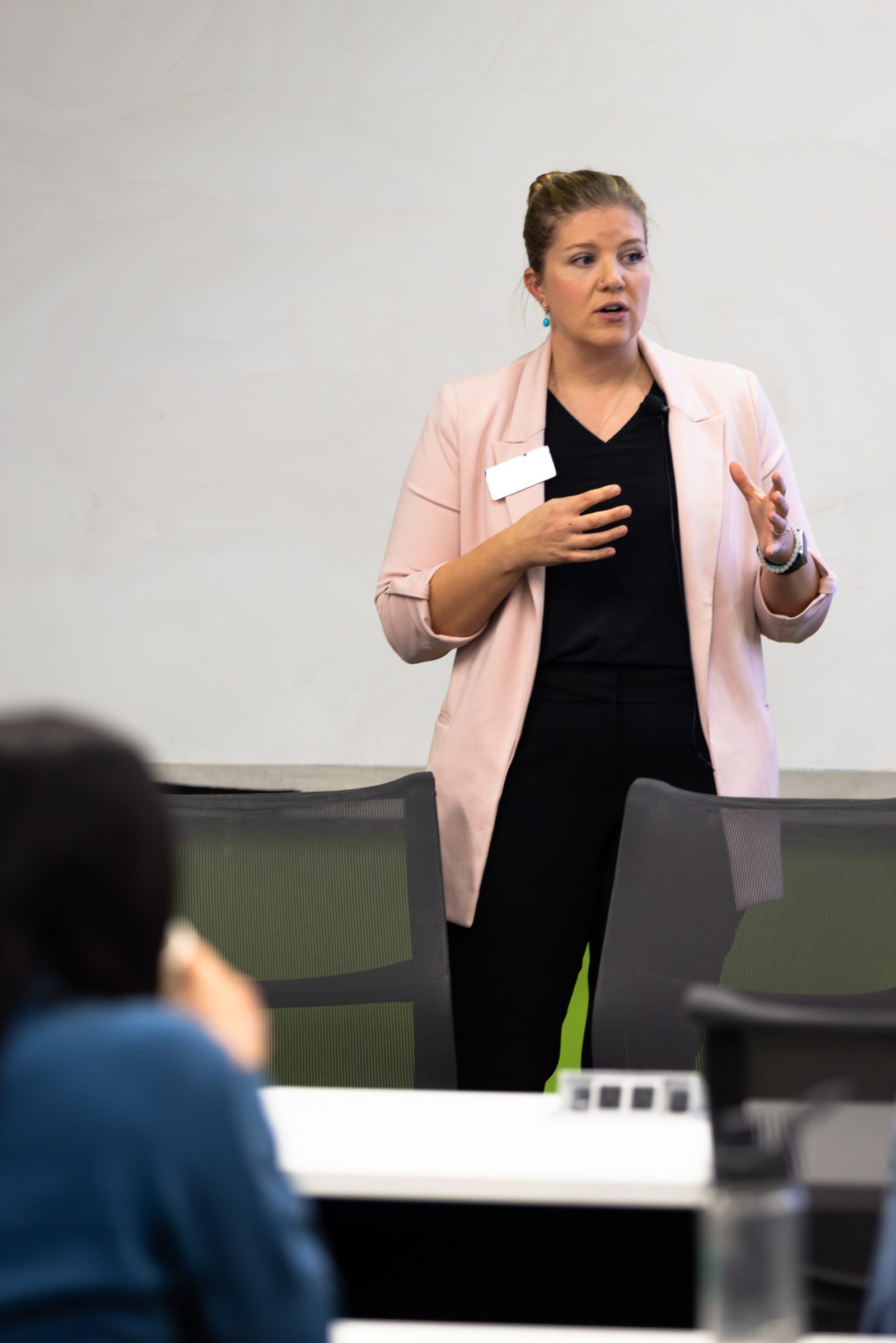
Oaklee Rogers, an Associate Dean for the College of Health and Human Services at NAU, noticed the effects of stress and burnout on students, especially in strenuous healthcare tracks.
“How can we expect [students] to go into this health care profession and not be burned out if they’re already experiencing that as students?” realized Rogers as she was looking through data on health student burnout. “What can we do to help these students?”
She knew more resources needed to be developed to support students who may be struggling, and joined her colleagues in creating an interactive workshop for students that aimed to increase awareness of stress and burnout, provide evidence-based strategies for stress management, and encourage students to create action plans for self-care; survey results show that students benefited demonstrably from the workshop.
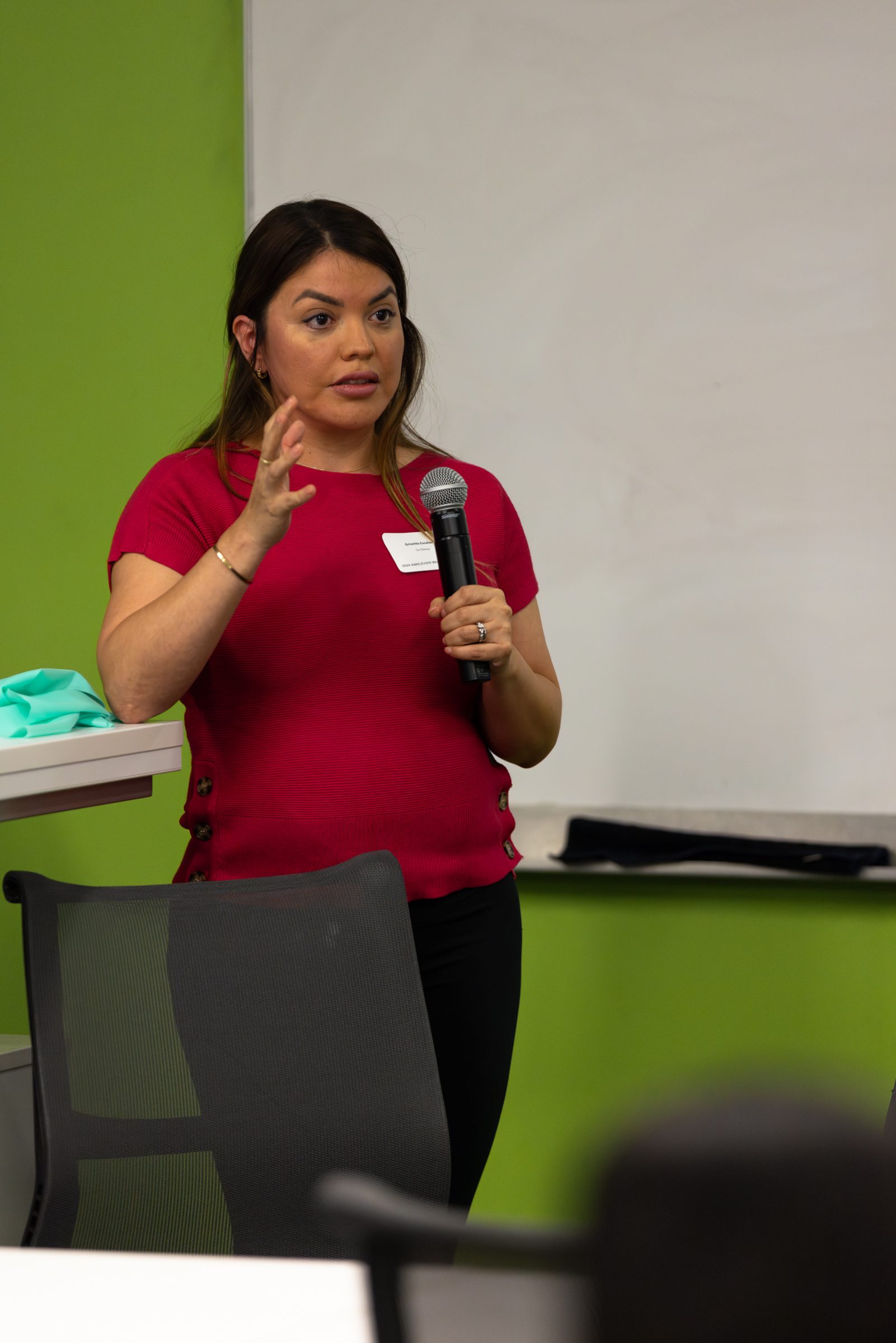
Griselda Escalon is a Family Nurse Practitioner of Pediatrics in a Federally Qualified Health Center, Su Clinica in Brownsville, Texas. She is also a Doctor of Nursing Practice (DNP) student at OSU. Escalon works primarily with children in the pediatric area of Su Clinica, which is separated into four “mini-clinics” providing medical care for children, women, general adult medicine, and dental care for a population that often lacks access to health care. Escalon conducted research with her coworkers on burnout they were feeling, compiled the data, and presented the results to leadership at the clinic. In conducting the research, she used the 10 Dimensions of Wellness developed by Melnyk and others at OSU to guide her in finding out the sources of burnout for her colleagues.
Escalon approached leadership cautiously, assuring them that the organization was not failing, but illuminating areas for improvement based on what clinic employees were saying.
“Thankfully, [leadership’s] mindset has been changing little by little as they see the results and engagement of employees” mentioned Escalon as she touched on her next steps in this research.
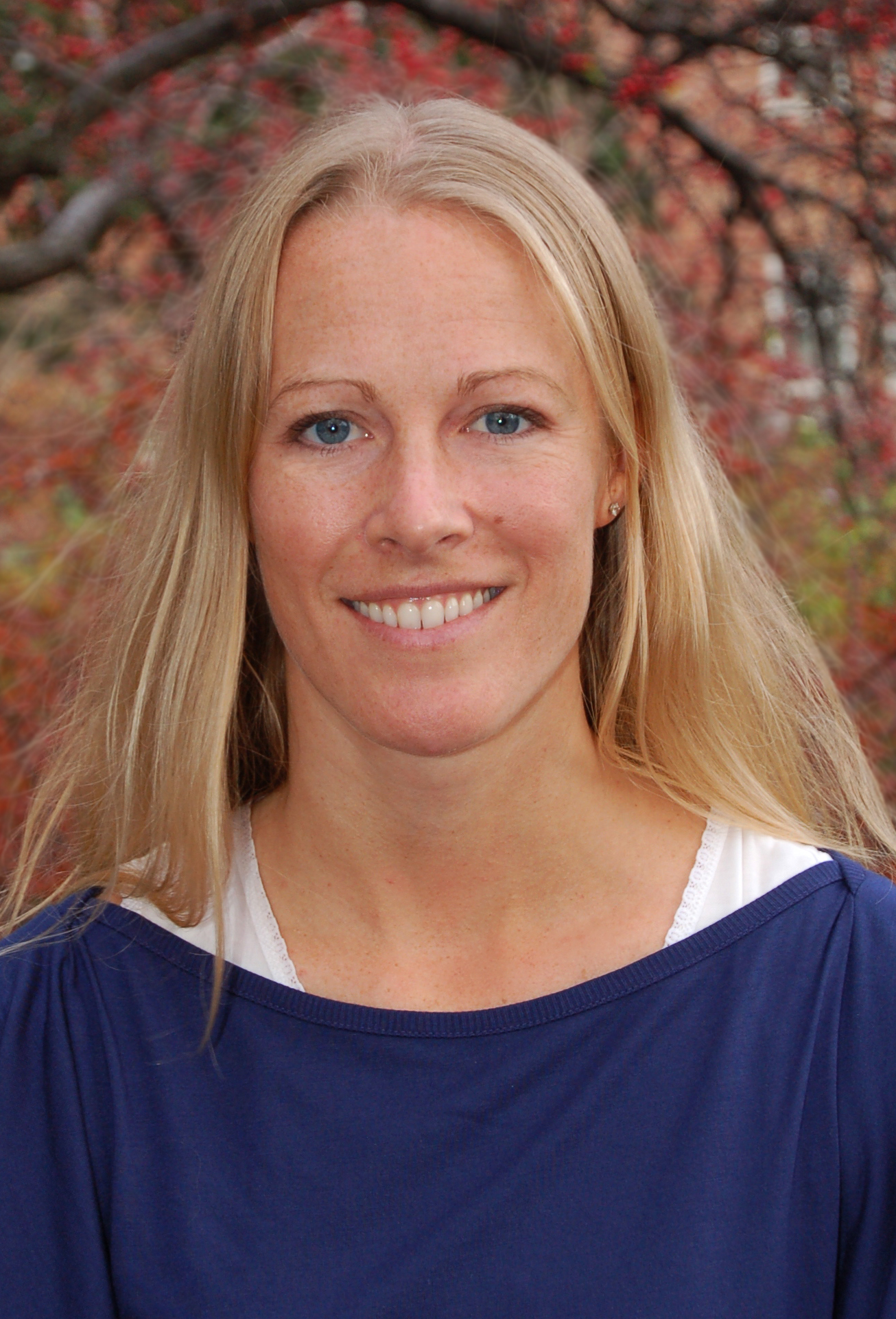
Kate Gawlik, a DNP student and Director of Undergraduate Wellness Academic Programming at OSU, discussed the urgent need for wellness initiatives within academic settings, highlighting the prevalence of burnout among health science students.
“If we’re not putting this in the foundation of all of our curricula and all of our programming, nothing else is going to matter that much” warned Gawlik.
With this knowledge, she proposed a proactive approach to supporting student well-being, advocating for the integration of wellness tools into academic programs. Gawlik introduced the “Live Well” philosophy at OSU’s College of Nursing, emphasizing evidence-based practices and a holistic approach to wellness. She described innovative strategies, such as the “Live Well” classroom, which incorporates movement and stress management techniques into the academic environment.
To support her philosophies on healthcare burnout, she presented data demonstrating the effectiveness of wellness interventions in reducing anxiety and stress among students. She described initiatives like weekly wellness activities and the “Wellness Olympics,” which incentivize healthy behaviors and promote a culture of well-being. She also highlighted the availability of resources, including a faculty toolkit, and publishes articles to support educators in integrating wellness initiatives into their courses.
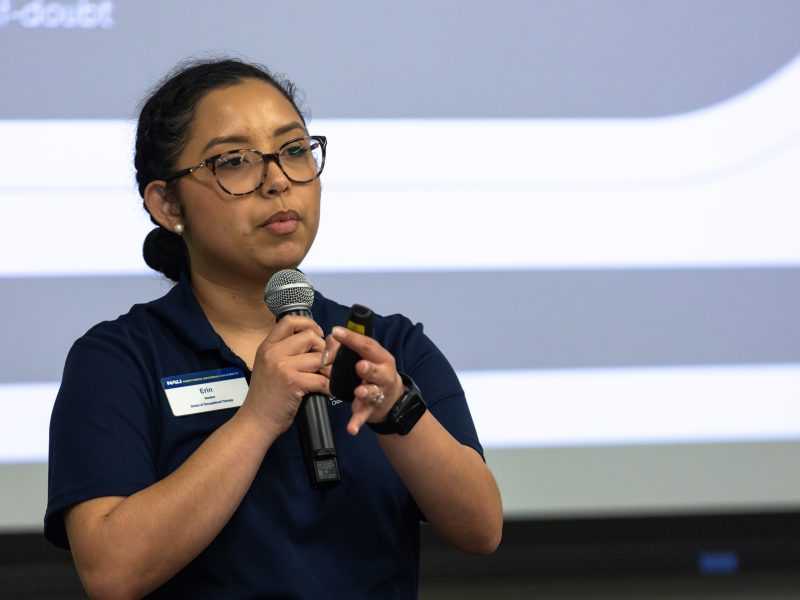
Erin Dimas, a third-year Occupational Therapy Doctorate student at NAU, shared insights into the pressing issue of student stress and burnout. Detailing recent findings, Dimas noted that “76.2% of students are reporting feeling more than average stress,” negatively impacting their mental health and academic performance. She emphasized contributing factors such as financial burdens, academic pressures, and personal responsibilities, which collectively intensify student anxiety and stress.
Reflecting on her personal struggles during her first year, Dimas shared, “I wasn’t asking for any help because I saw all my classmates struggling too. So, I was like, okay, we’re all just having to go through it together.”
However, after failing to see improvements in her academics, she sought help, which led to significant changes in her study habits and mental health management. This turnaround was pivotal, leading her to advocate for early intervention and support for fellow students.
In her capstone project, Dimas has piloted a comprehensive wellness program aimed at mitigating stress through yoga, meditation, and other mindfulness practices. Despite initial challenges in student participation, she remains committed. Through her efforts, Dimas continues to push for greater awareness and engagement, highlighting the essential role of proactive wellness initiatives in academic settings.
After each of these healthcare professionals shared their burnout research, programs, and strategies, Dr. Cindy Beckett brought the room into the panel discussion. Dr. Beckett is the Assistant Director of the Academic Core and Director of the Evidence-based Practice Certification/Certificate Programs for the Helene Fuld Health Trust National Institute for Evidence–based Practice in Nursing & Healthcare and has been involved with the ABRC Workshop Education Series for many years.
Each of these healthcare professionals is addressing burnout in their own settings by building foundational support throughout the healthcare pipeline. From student to staff, each person involved in healthcare needs to provide the utmost medical support for patient zero: themselves.
This workshop was supported by Arizona Department of Health Services – Arizona Biomedical Research Centre, Northern Arizona University Center for Health Equity Research, and the Arizona Occupational Therapy Association.
Learn more about ABRC and register for upcoming workshops